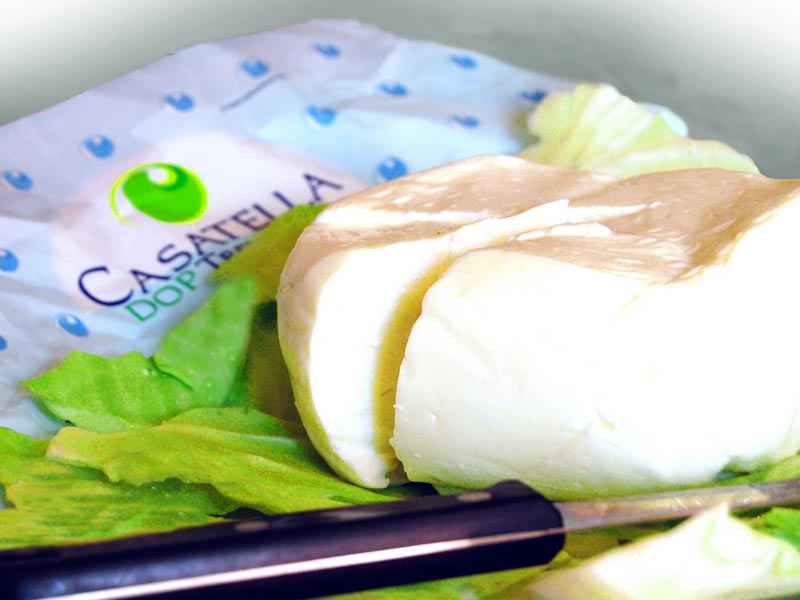The origins of the name
The name Casatella does not come from the Latin Caseus, meaning "cheese", but from "casa" (home), not only referring to the place housing the ancient rural families formed by many people, but also to the main member of the family, the mother, the "woman of the household".
As a matter of fact, in the area of Treviso the cheese processing activity was usually referred to women, who were able to obtain simple and delicious products for the whole family from the limited available resources. Among these products, Casatella.
Originally it was called "Casada", a local term indicating it was made "at home". This is confirmed by the fact that even today, in Treviso dialect, every product, whether bread, sausage, polenta or anything else, is called "de casada", if it is made within the family and is therefore considered as to be healthy and genuine. From "Casada" came "Casata", which then became "Casatela".
Daily Food
When farmsteads were rich, with many animals, there was enough milk to prepare mature cheese to keep for the miserable periods or to use as an exchange good.
However, the family needed food every day and milk was the cheapest raw material to obtain a food rich in proteins, necessary to make kids grow strong and healthy and to bear the daily efforts. Therefore, also a soft and not cooked cheese was produced, immediately ready for consumption.
Casatella is not a "low-fat cheese", but it is a healthy and balanced product.
It has a simple and delicate taste and adequate nutritional properties to the modern life style, although it is not a low-fat cheese (over 50% fat). However, its fat contains precious protective elements, vitamins, and mineral salts that are essential for our body. For a correct diet, it is necessary to eat it together with vegetables and other ingredients that do not contain further lipids. Anyway, low-fat cheese does not even exist: usually, the so-called "low-fat cheese" is formed by agglomerates of dairy products held together with artificial thickening agents.
100 g of Casatella Trevigiana PDO contain the following:
- Water 53/60 %
- Proteins 15/20%
- Fats 20/24%
- Calcium 0,50%
- Phosphorus 0,40%
- Calories 270 kcal
Finally it has obtained the PDO label
On 6th June 2008, after almost nine years of procedures, the European Community has awarded its label. The first result has been the increase in the number of cheese factories (from 11 to 14) joining the production specifications for Casatella Trevigiana.
Further information (in Italian)








